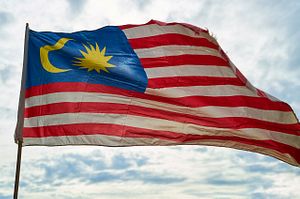The election of a new government in May 2018 wasn’t just received with a sense of hope and expectation by the Malaysians who voted for it. For the over 170,000 refugees and asylum seekers living in the country, the Pakatan Harapan (PH) government represented a potential gamechanger.
Malaysia has yet to ratify the 1951 Refugee Convention, and refugees who end up in Malaysia are therefore considered “undocumented migrants” and afforded no legal rights. This includes, crucially, the right to work. The new government had pledged in its pre-election manifesto to sign the 1951 convention and allow registered refugees access to employment, though this has yet to happen.
While some refugees are able to use Malaysia as a temporary transit point to apply for asylum in a Western country, many refugees are effectively stuck in Malaysia for years, even decades, with resettlement increasingly unlikely. Practically, refugees manage to get by — local authorities often looking the other way and allowing them to stay informally. This “limbo” of being permitted to stay without legal status can be a persistent source of uncertainty for refugees wishing to integrate into their host country. As they are often mistaken for illegal migrants, they remain under constant threat of detention or deportation.
Without any aid from the government, much of the burden of ensuring the humanitarian needs of refugees are met is absorbed by local and international NGOs and the United Nations High Commissioner for Refugees (UNHCR), which frequently lack the resources and reach to cover this entire population. Despite an expressed solidarity for refugees on a civil society level, refugees on a day to day basis often have to fend for themselves.
In terms of livelihood, refugees are forced to work in the informal economy and the black market. According to the UNHCR, the majority of refugees who manage to find work do so in the agricultural and construction sectors, where there is a higher demand for low-skilled workers. Yet, by being employed off the books, refugees are commonly paid lower wages, face dangerous working conditions, and are vulnerable to exploitation.
A report released in April by the Institute for Democracy and Economic Affairs, a Malaysian think tank, highlighted the potential economic benefits to Malaysia of granting refugees legal employment opportunities. The report estimates that refugees can add over 3 billion Malaysian ringgit ($719.4 million) to the Malaysian GDP and 50 million ringgit ($11.9 million) in tax revenue in the next five years. Critically, the report also addresses concerns of Malaysians worried that refugees will crowd out locals from the labor market by suggesting that such negative impacts are “likely to be minor and limited to other foreign workers and older, less educated Malaysians.”
With over a year having passed since the election of Pakatan Harapan, refugees have been hearing encouraging noises from the government but not much change in their daily lives. Detention rates have not notably decreased, and refugees are still forced to maintain a low profile while they pursue informal jobs. The previous government did conduct pilot projects allowing a small population of Rohingya to work in the plantation sector, with mixed results, and the present government is considering pilots in different sectors as well.
On a broader policy level though, given the political backlash by opposition forces last year to Pakatan Harapan’s move to ratify the International Convention on the Elimination of All Forms of Racial Discrimination (ICERD), which eventually caused the government to back down, it seems unlikely that the Refugee Convention will be signed in the near term. As less than half of their manifesto promises have yet to achieved, the government faces significant domestic pressure and the refugee matter may drop further down on the agenda.
Refugees in Malaysia are expecting that positive signals from the Pakatan Harapan government can translate into incremental changes on the ground rather than dramatic shifts from the top. Arguments for refugee employment based on humanitarian and economic grounds though, for the time being, remain subject to political considerations.
Saqib Sheikh serves as project director of the Rohingya Project, a grassroots initiative for financial inclusion of stateless Rohingya worldwide, as well as adviser/co-founder for the Refugee Coalition of Malaysia (RCOM), a network of 14 refugee communities based in Malaysia.

































